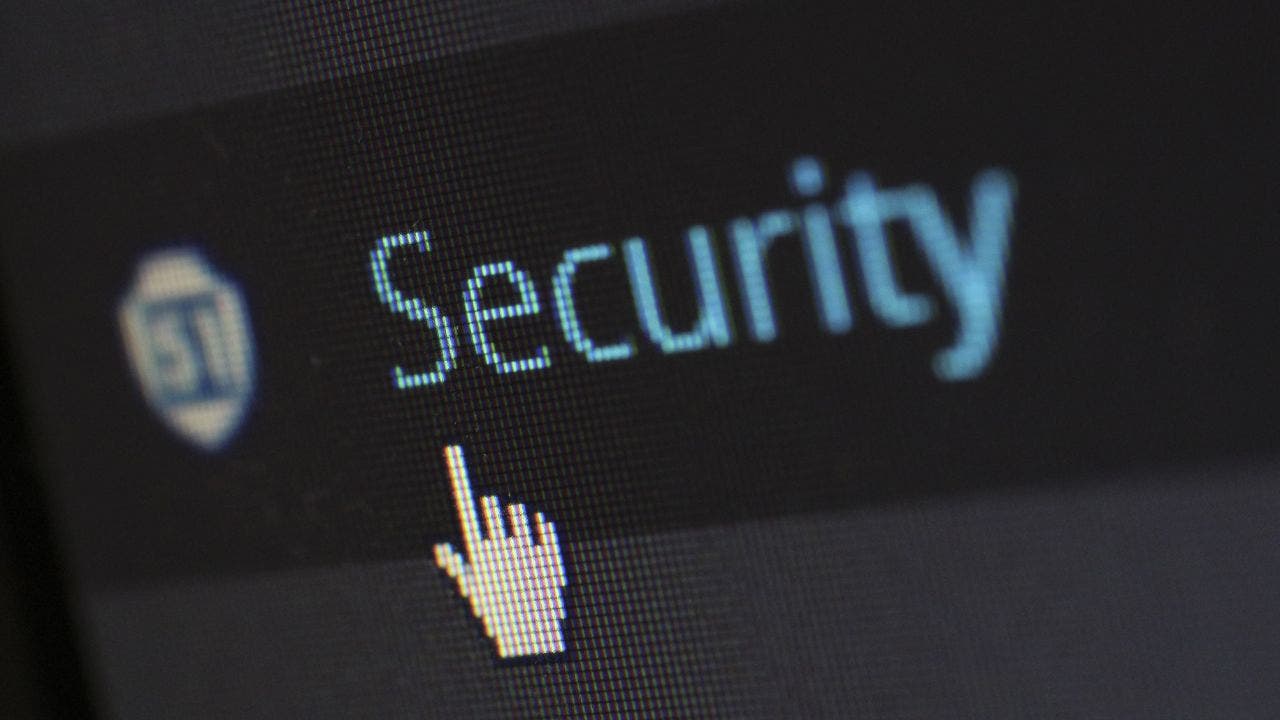There are so many things you can do to protect yourself and your loved ones by stepping up your privacy and security. All the things you can do, however, can be overwhelming. Below are six simple steps you can take right now that will help make your life safer and more secure immediately.
CLICK TO GET KURT’S FREE CYBERGUY NEWSLETTER WITH SECURITY ALERTS, QUICK VIDEO TIPS, TECH REVIEWS AND EASY HOW-TO’S TO MAKE YOU SMARTER
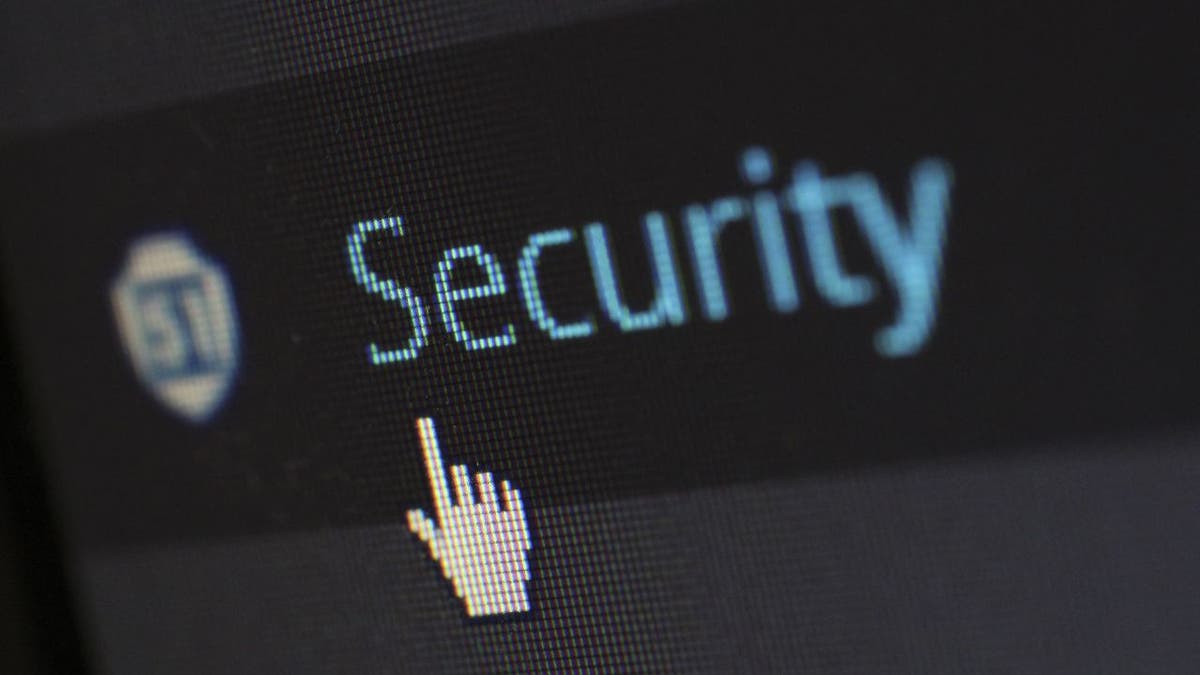
Security icon on the computer (Kurt “CyberGuy” Knutsson)
1. Turn on ‘Find My’ on your iPhone
While it seems like a basic step, “Find My” is not on by default on your iPhone. If you own an Apple device or are fully immersed in the Apple ecosystem, it is worth it to make sure to turn on Find My.
If you lose or have your Apple device stolen, and it is linked to Find My and turned on, you can use the app or sign into your iCloud account to track your device. For the Find My app to be effective, the device that is lost or stolen needs to be powered on and usually connected to the internet or data network.
Apple offers another feature known as Find My Network. This allows for tracking Apple devices even when they are not connected to the internet. However, it’s important to note that for this feature to be effective, Find My must be enabled on the device before it is lost or stolen.
Now, let’s discuss the steps to follow for Android. Install the Find My Device app to be prepared to use one Android phone or tablet to find another. Click here to learn how to find, lock or erase your Android device.
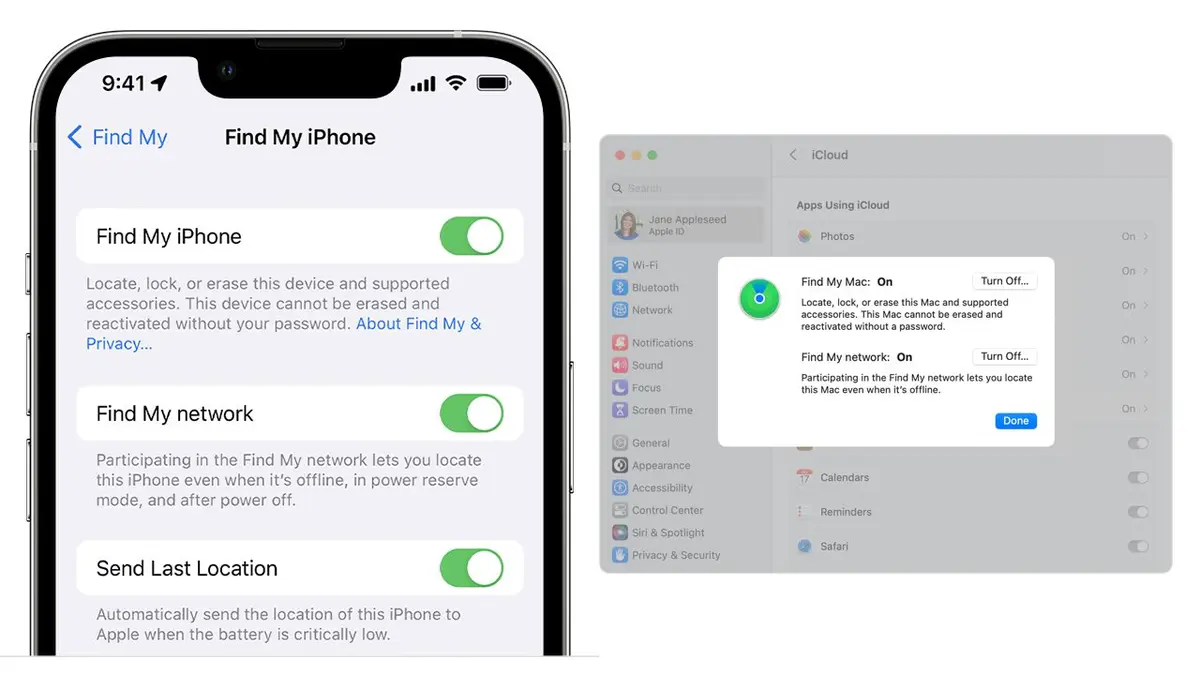
Find My iPhone feature (Kurt “CyberGuy” Knutsson)
MORE: 8 WAYS TO LOCK UP YOUR IPHONE’S PRIVATE STUFF
2. Activate ‘Stolen Device Protection’
iPhones are not only expensive, but they usually contain important personal and professional information. This makes having your iPhone stolen a complete nightmare. Turning on this “Stolen Device Protection” feature on your iPhone can give you an extra layer of protection. This feature gives you an additional layer of protection when your iPhone leaves a familiar location, such as work or home.
If you have this feature on, and your device is away from your familiar locations, it will require Face ID or Touch ID for biometric authentication to access certain features of your iPhone, such as accessing passwords or credit card information.
Additionally, a security delay is activated, so outside your familiar locations, there is an hour delay to take security actions such as changing your Apple ID password and then a Face ID or Touch ID authentication.
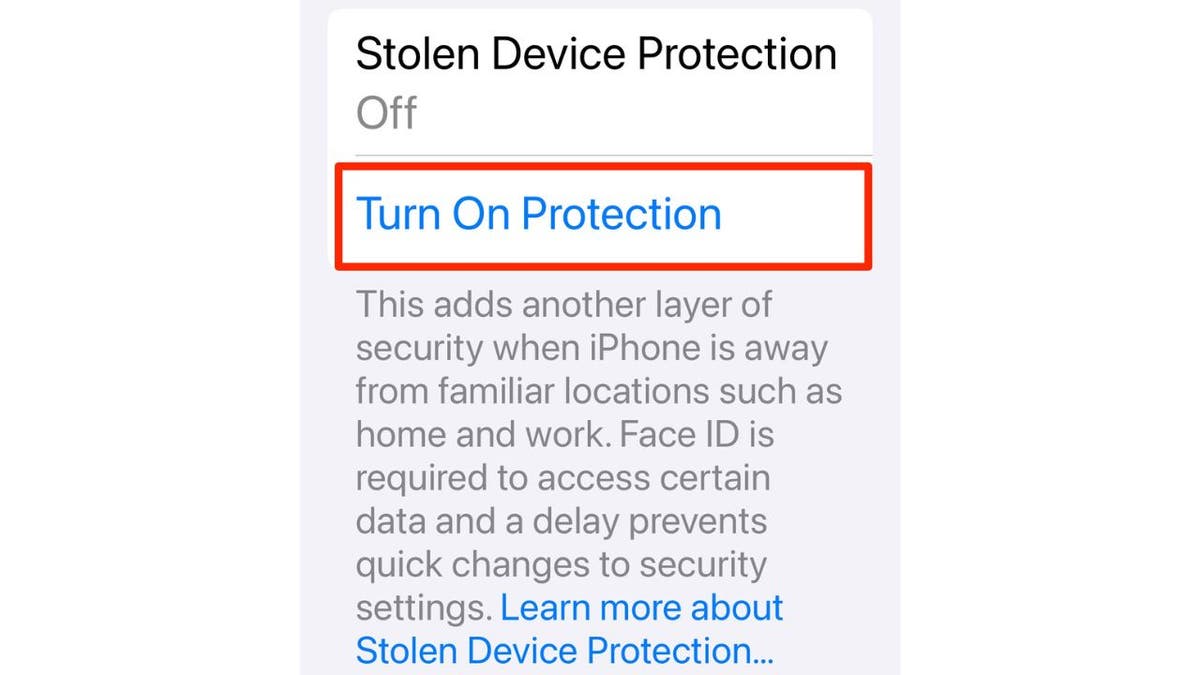
Stolen Device Protection on iPhone (Kurt “CyberGuy” Knutsson)
3. Secure your social media accounts before they get hijacked
While it can be easy to dismiss social media accounts as a nonessential aspect of your digital security or privacy, it can be the gateway for danger if you aren’t proactive. Once your social media accounts are hacked, not only can hackers and scammers target your information to wreak havoc in other aspects of your life, but they can use it to target your social or professional networks.
If inappropriate materials are posted on your social media accounts, it can damage not only your social reputation but also your professional one. To avoid this, take several steps right away, including changing your passwords or turning on two-factor authentication. Also, consider using a password manager to generate and store complex passwords.
In addition, here’s how to change your privacy settings on Facebook, Instagram and X.
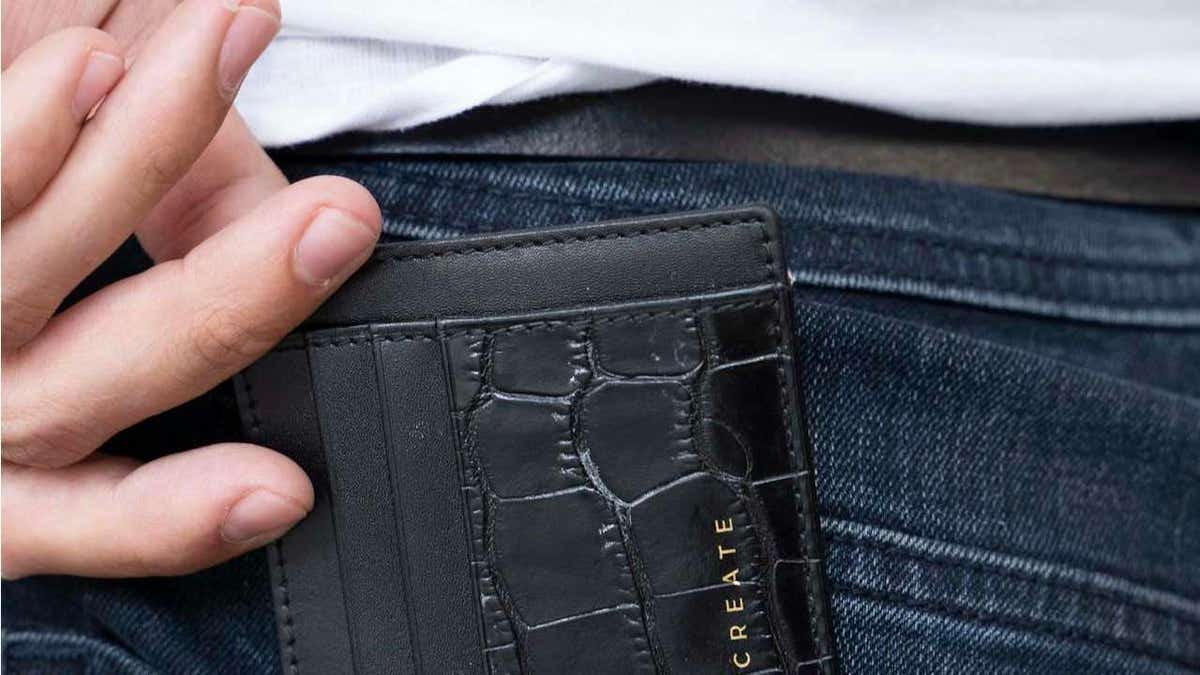
A person reaching to pull out their wallet (Kurt “CyberGuy” Knutsson)
MORE: HOW IMPOSTERS ARE TRYING TO EXPLOIT YOUR GRIEF AND WALLET IN A NEW FUNERAL SCAM
4. Empty your wallet of these items
Sometimes it isn’t your devices that can put you at risk from scammers and criminals. It might be as simple as what you carry in your wallet. Because you’re usually carrying your wallet when you’re operating in the world, it has the potential to leave you more vulnerable than certain devices, such as your desktop.
Carrying items such as all your credit and debit cards in your wallet puts all your accounts at risk as opposed to only carrying the cards you most commonly use. If your wallet gets stolen, you still have alternative cards to use while you freeze or replace your cards. For other items to remove from your wallet immediately, read “Why you should never carry these things in your wallet.”
5. Back up your devices
Because hackers have become more sophisticated and resilient, it has caused consumers to return equal force with more sophisticated efforts to maintain their security and privacy. An old-school step, however, that gets lost in the shuffle of this effort is backing up your devices. Data, whether it be photos or contacts, is sometimes irreplaceable. Though devices can be expensive to replace, data, if lost, can be incredibly hard to recover.
Regularly backing up your devices can give you an advantage over any breaches in security. If you have the option to remotely delete information on your device if it gets stolen, you can do so with definitive ease. If your device crashes or breaks, you don’t have to spend costly amounts of money to try to recover data.
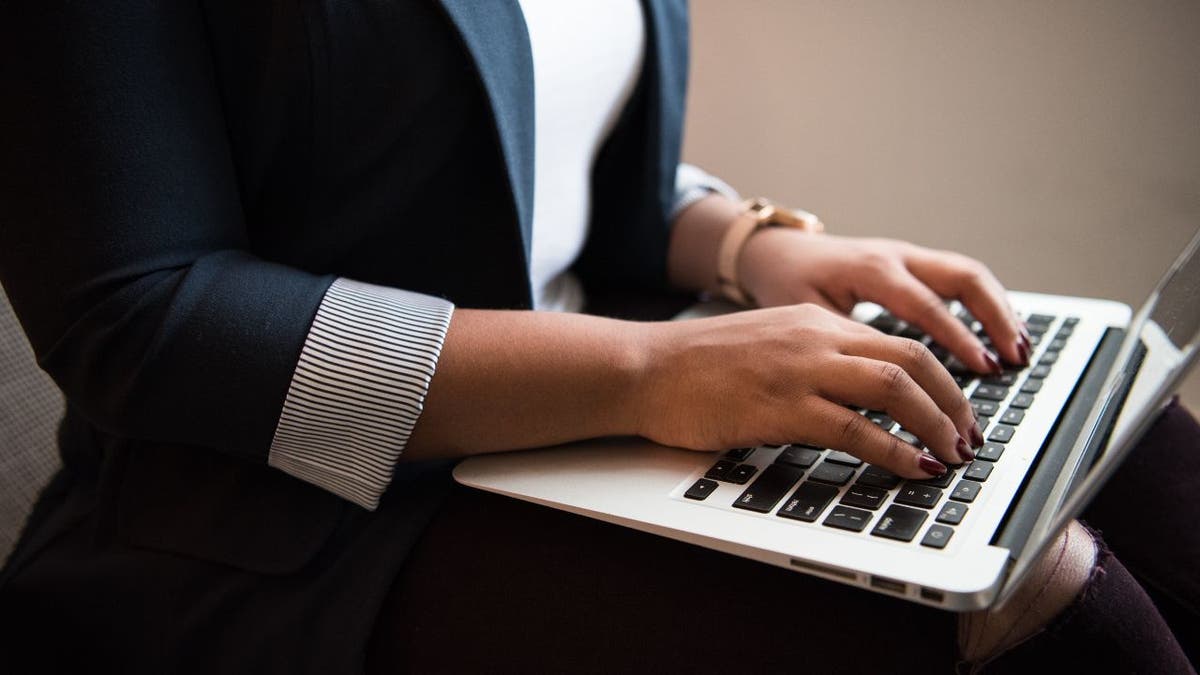
A woman typing on laptop (Kurt “CyberGuy” Knutsson)
MORE: WINDOWS DEFENDER VS ANTIVIRUS SOFTWARE: FREE PROTECTION FALLS SHORT
6. Have good antivirus software on all your devices
Viruses or malware can not only make your device a nightmare to use, they can also make it your worst enemy by being a wealth of personal and professional information that can be used against you. If the problem is bad enough, you may be required to reset your device to its factory setting, which means you can lose all your data.
The best way to protect yourself from clicking malicious links that install malware that may get access to your private information is to have antivirus protection installed on all your devices. This can also alert you of any phishing emails or ransomware scams.
By simply installing and turning on an antivirus service, you can catch viruses and malware before they completely infect and infiltrate your device. See expert reviews of the best antivirus protection for your Windows, Mac, Android and iOS devices.
Kurt’s key takeaways
In a more complicated world with a variety of devices that can leave you more vulnerable to criminals, it may seem easier to bury your head in the sand. If you take or have taken any of the simple steps above, you have already made your life safer.
Have you ever lost or had your device stolen? Have you ever lost your wallet and experienced identity theft or fraud as a result? What behavioral or physical changes have you had to make to adjust to the changing landscape of modern life? Let us know by writing us at Cyberguy.com/Contact.
For more of my tech tips & security alerts, subscribe to my free CyberGuy Report Newsletter by heading to Cyberguy.com/Newsletter.
Ask Kurt a question or let us know what stories you’d like us to cover.
Answers to the most asked CyberGuy questions:
Copyright 2024 CyberGuy.com. All rights reserved.

